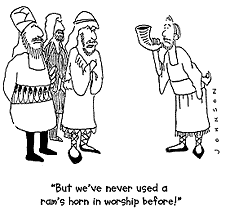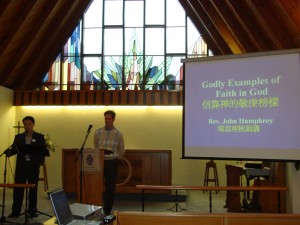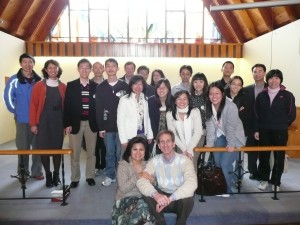Last night we had an HBC worship ministry tune-up night. It’s an evening where our musicians, leaders, sound engineers and projector specialists — and their families — get together for a meal, to enjoy fellowship, sing together, have a short bible study, pray for each other, and in general encourage each other in the worship ministry. It’s been really helpful to get together and do this, and I know I’ve personally benefitted each time we’ve done it.
The topic of study and discussion last night was on the issue of worship music style. Let’s be honest – it’s an issue that most churches grapple with to some degree, as believers wrestle over the question: “What style of music is most appropriate in corporate worship?”. For some churches, it’s a non-issue, as the church family all seem to enjoy worshipping under one musical style. In other cases, churches split into different-styled services (e.g. an early morning hymn service, versus a contemporary family service), catering to different preferences but dividing the church family in this way. And in extreme cases, church members argue and fight, and even split into different churches, because the tensions of “traditional” and “contemporary” music aren’t reconciled.
HBC, God has blessed us with a congregation that spans multiple generations. In our Sunday service, we have octogenarians and other seniors worshipping alongside high-school and university-aged students. We have folks from different cultures and countries, all worshipping “one Lord, one faith, one baptism, one God and Father of all” (Eph 4:5-6). Naturally, this brings together folk who have very contrasting preferences regarding musical style, and so this is a practical and pertinent topic for us.
So during our tune-up night, we had some honest and robust discussion on this issue, and we worked through some passages in the Bible to help orient our thoughts and direct the discussion. There were many good points made, I know many of us were convicted as the truth of God’s word was applied to each of our own preferences in worship music. Time, however, passed very quickly, and I thought it would be practical and helpful to share some of the things we talked about, over a couple of longer posts.
Worship music: God’s idea
The first (and most important) thing to point out is that God has plenty to say about music in worship. After all, music was God’s idea, and he saw it fit to ask David — a man after God’s own heart — to schedule skilled musicians to regularly play as part of various temple ceremonies (1 Sam 13:14, 1 Chron 16:5-7). In the Psalms, God’s people are repeatly called to “sing a new song to the Lord”, and to “praise Him with musical instruments” (Psalm 33:1, Psalm 150). In addition, Jesus Himself saw it fit to sing with his disciples (Matthew 26:30) before he was crucified: you could almost see Him and the twelve disciples forming a decent a cappella vocal group…
To me, the two passages that describe worship music most clearly are found in two of the Apostle Paul’s various epistles. In Paul’s letter to the church at Colossae, he writes: “Let the word of Christ dwell in your richly, teaching and admonishing one another in all wisdom, singing psalms and hymns and spiritual songs, with thankfulness in your hearts to God. And whatever you do, in word or deed, do everything in the name of the Lord Jesus, giving thanks to God the Father through him.” (Colossians 3:16-17)
Paul repeats this instruction to the church at Ephesus, when he notes that being Spirit-filled comes with the desire to be “addressing one another in psalms and hymns and spiritual songs, singing and making melody to the Lord with your heart…” (Eph 5:19)
So in all of this, it’s pretty clear that God desires music and singing to be part of our worship. In the next post I’ll use Colossians 3:16 as a basis to outline the criteria for which HBC’s worship music is based on. In the meantime, if I may ask — what discussions do you have at your church/fellowship regarding choice of music? What’s the worship music like at your church? Are there any explicit criteria set out for the music at your church?
“The highest form of worship is hearing God’s Word with an obedient life and then living in submission to its truth.” – Martin Luther
————————-
– William Chong





